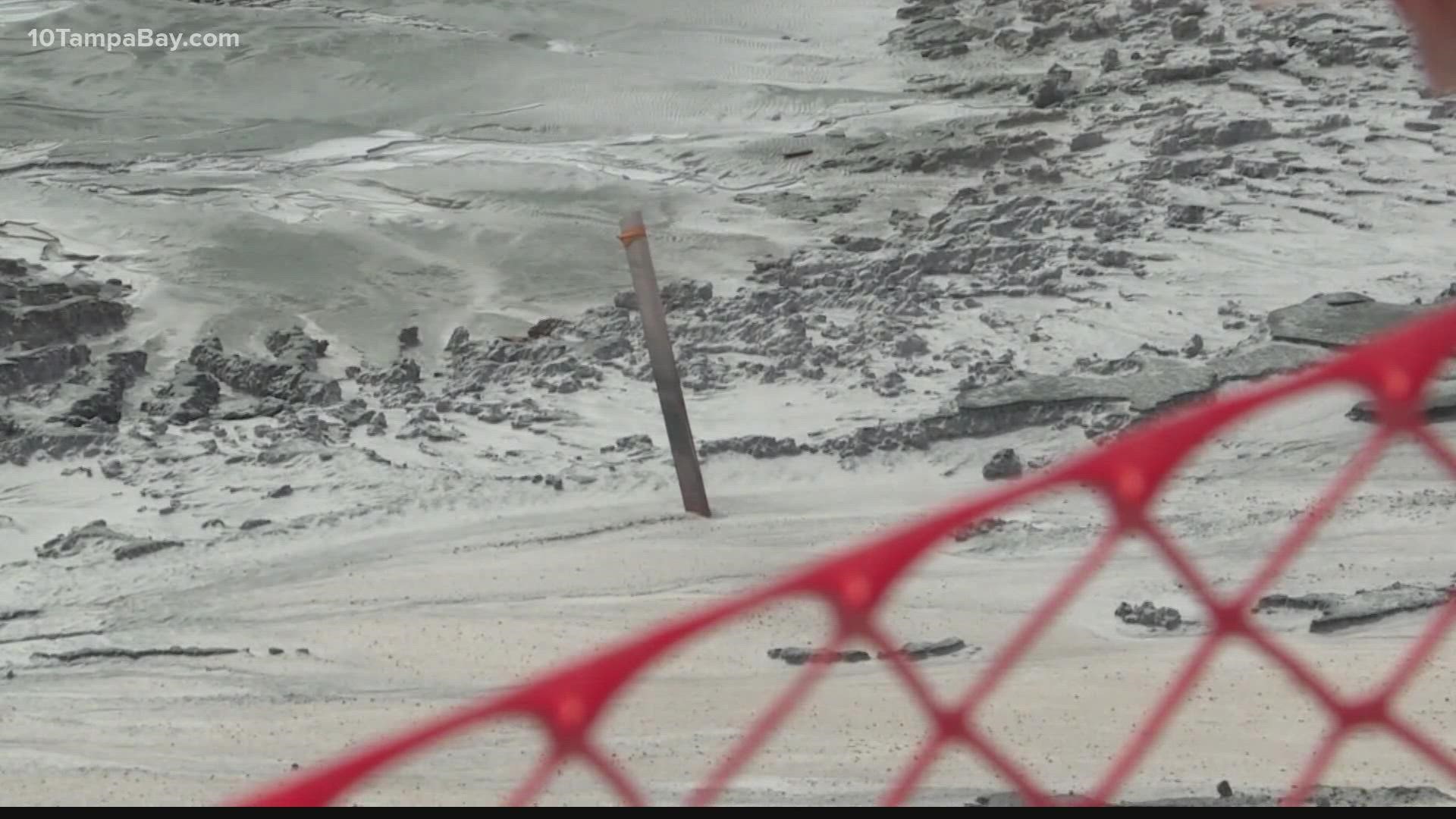TAMPA, Fla — This year’s leak at Piney Point definitely got people’s attention when it comes to gypsum stacks in our area.
And now one of the biggest stacks in Florida — also with a history of issues — has gotten the green light to grow even bigger.
The expansion at Mosaic’s New Wales facility has critics so concerned even as the company says it’s taking safety to a new level.
On Oct. 15, Florida’s Department of Environmental Protection quietly gave Mosaic the OK to expand its gypsum stack at the company’s New Wales facility in Polk County, adding another 231-acres to its current 704-acre site.
“There’s just a lot of things in this permit that hasn’t been in our permits in years past,” said Sarah Fedorchuk, Mosaic's vice president of governmental and public affairs.
Fedorchuk says a lot has changed since the 2016 disaster when a sinkhole opened up, allowing more than 200 million gallons of contaminated water to seep into Florida’s aquifer.
The expanded operation will use the same type of protective liner but inspections will be more frequent, she said. Money is set aside to assure that if there are problems they can be handled. And sensors called geophones have been buried throughout the property.
“These geophones are so sensitive,” Fedorchuk said “For example, we picked up the earthquake in Haiti a couple of months ago, because they’re so sensitive.”
Still, concerned neighbors and environmentalists are stunned.
“Really, it’s unconscionable the part of the DEP,” said Dennis Mader, a long-time member of a group called People Protecting the Peace River.
“The industry will say that there is no proof that it ever left our property,” said Mader, “But how can they test all that? How can they know?”
The expansion permit at New Wales had faced opposition from a well-organized social media campaign including a new generation of people made aware of the risks posed by gypsum stacks following the more recent breach at Piney Point.
“Look, if we’re downstream from this, we have to worry about this,” said Gil Smart with Friends of the Everglades. “If this is going to impact the aquifer what’s that going to do to our water, that sort of thing.”
Still, DEP signed off on Mosaic’s expansion permit, leaving critics — including Florida Agriculture Commissioner Nikki Fried — shaking their heads.
“What is the role of DEP? Is it, purely, again to rubberstamp? Or is it actually to protect the environment and be able to be proactive and deny some of these types of permits,” said Fried, “And actually come up with solutions to the environment and not just putting Band-Aids on issues once they’ve already occurred.”
As a result of the 2016 incident, Mosaic continues to test and monitor water quality in the area surrounding the New Wales facility and has committed to doing so for years to come.
Mosaic says operations at the newly permitted part of the site will likely start in about a year with the capacity to store waste product for another five to six years beyond that.

